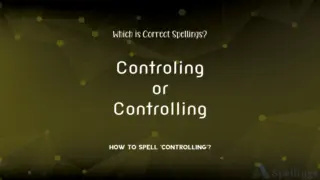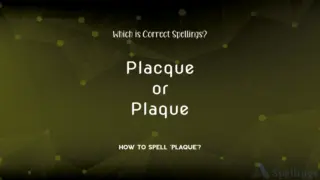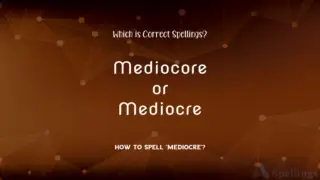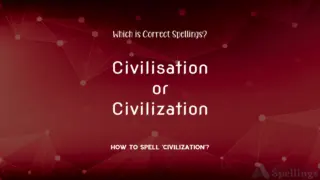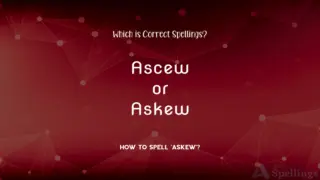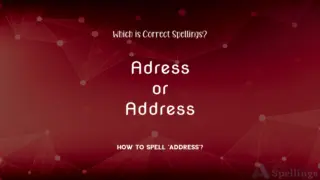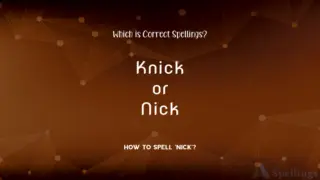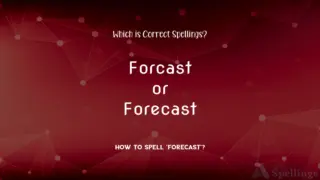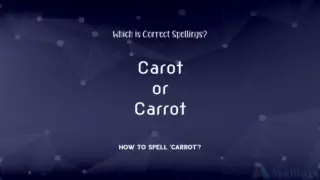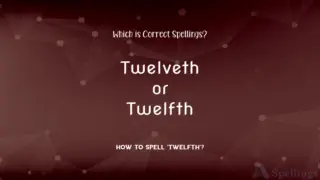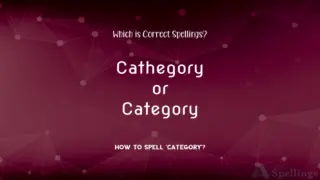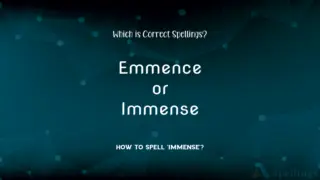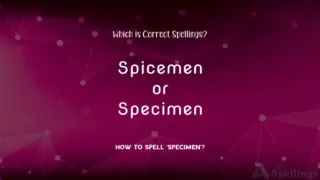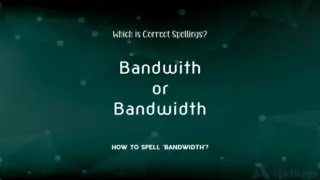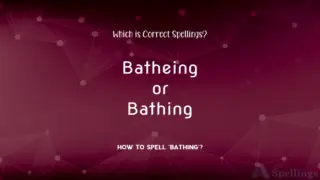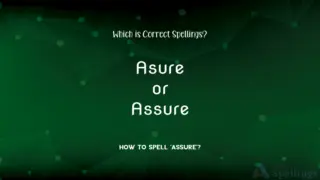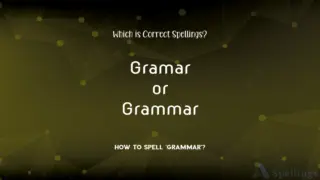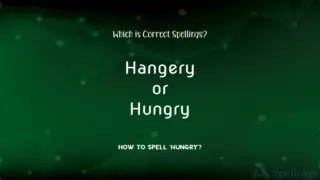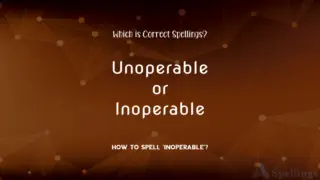Caffiene or Caffeine: Which is Correct Spellings?
The incorrect spelling is "caffiene," while the correct spelling is "caffeine." Caffeine is a stimulant found in coffee and tea.
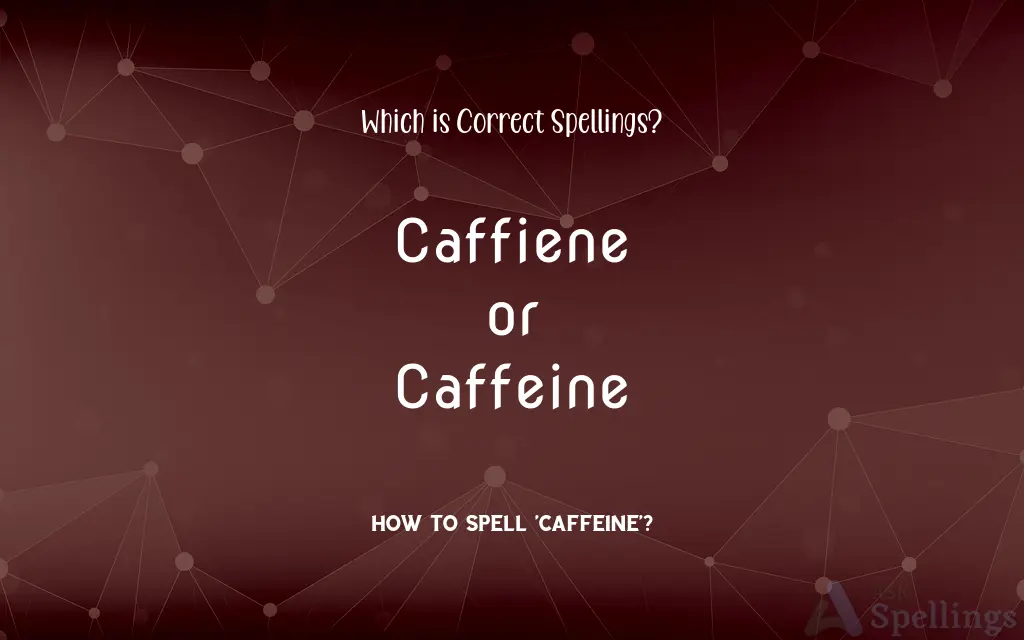
Which is correct: Caffiene or Caffeine
How to spell Caffeine?

Caffiene
Caffiene Spelling

Caffeine
Caffeine Spelling
Table of Contents
Is it Caffiene or Caffeine
Rhyme Reminder: It rhymes with 'bean', not 'been', which can help remember the 'e' comes before 'i'.
Think of 'Cafe': "Caffeine" starts like 'cafe', which serves coffee containing caffeine.
'E' Before 'I': Recall the rule, 'i' before 'e' except after 'c', which applies to "caffeine".
Visual Cue: Visualize the correct spelling as 'caff' + 'eine'.
Pronounce Correctly: Pronouncing it as "caff-eine" can help remember the correct order of 'e' and 'i'.
How Do You Spell Caffeine Correctly?
Incorrect: Some people are sensitive to caffiene.
Correct: Some people are sensitive to caffeine.
Incorrect: Too much caffiene can make you jittery.
Correct: Too much caffeine can make you jittery.
Incorrect: This tea contains less caffiene than coffee.
Correct: This tea contains less caffeine than coffee.
Incorrect: She avoids caffiene in the evening.
Correct: She avoids caffeine in the evening.
Incorrect: The doctor discussed the effects of caffiene.
Correct: The doctor discussed the effects of caffeine.
Caffeine Definitions
Energy Boost: Provides a temporary boost in energy.
Many athletes use caffeine for an energy boost.
Affects the Nervous System: Acts on the central nervous system.
Caffeine can impact sleep due to its effects on the nervous system.
Stimulant Compound: Caffeine is a stimulant found in coffee and tea.
Caffeine helps people feel more awake.
Enhances Alertness: Increases alertness and concentration.
Caffeine is consumed for its ability to enhance alertness.
Found in Beverages: Present in various beverages and foods.
Caffeine is naturally found in chocolate.
Caffeine Meaning in a Sentence
Caffeine is also present in some medications.
Some people are more sensitive to caffeine.
A moderate amount of caffeine can be beneficial.
Green tea has less caffeine than coffee.
Caffeine can help improve focus.
Caffeine withdrawal can cause headaches.
Many soft drinks contain caffeine.
Many people start their day with caffeine.
Caffeine is commonly found in coffee.
Caffeine can make it hard to sleep.
Some people avoid caffeine for health reasons.
Caffeine is a natural component of tea leaves.
Energy drinks often have high caffeine levels.
Caffeine consumption can be a habit for some.
Caffeine's effects vary from person to person.
Chocolate contains small amounts of caffeine.
Caffeine can be found in certain gum and candies.
Caffeine can temporarily boost athletic performance.
Caffeine is sometimes used in migraine relief.
Caffeine can be addictive for some individuals.
Caffeine is used worldwide in various cultures.
Caffeine can improve mood and mental function.
Decaf coffee has minimal caffeine.
Overconsumption of caffeine can lead to jitters.
Caffeine helps in staying alert during long meetings.
It's important to monitor caffeine intake.
Caffeine is a popular study aid for students.
Caffeine intake should be limited for children.
Caffeine affects people in different ways.
Caffeine can increase heart rate and blood pressure.
Caffeine Idioms & Phrases
Caffeine habit
A regular practice of consuming caffeine, often implying dependence.
His caffeine habit was hard to break during his health cleanse.
Caffeine fix
Obtaining a dose of caffeine, usually from coffee or tea, to satisfy a craving or need for energy.
Every morning, he relies on his caffeine fix from his favorite espresso.
Caffeine withdrawal
The physical and mental symptoms experienced when a habitual caffeine consumer stops intake.
Missing her morning coffee resulted in caffeine withdrawal headaches.
Caffeine boost
A surge of energy or alertness provided by consuming caffeine.
She needed a caffeine boost to finish her work, so she grabbed a cup of coffee.
Caffeine jitters
Nervousness or shakiness resulting from consuming too much caffeine.
After three cups of coffee, she felt the caffeine jitters.
Caffeine rush
A sudden burst of energy after consuming caffeine.
She experienced a caffeine rush after drinking an energy drink.
Caffeine craving
A strong desire to consume caffeine.
By mid-afternoon, he had a strong caffeine craving.
Caffeine cycle
The habitual pattern of consuming caffeine regularly.
She was stuck in a caffeine cycle, needing coffee to start and end her day.
Caffeine dependence
A physical or psychological reliance on caffeine.
His morning grogginess was a sign of caffeine dependence.
Caffeine overload
Consuming an excessive amount of caffeine, leading to negative side effects.
Drinking multiple energy drinks led to caffeine overload and restlessness.
Caffeine-fueled
Driven or energized by caffeine.
The team's late-night project was caffeine-fueled.
Caffeine buzz
A feeling of excitement or euphoria after consuming caffeine.
He enjoyed the caffeine buzz from his morning cappuccino.
Caffeine kick
The energizing effect felt after consuming caffeine.
She felt the caffeine kick from her latte and started her day energetically.
Caffeine tolerance
The diminished response to caffeine due to regular consumption.
Due to her caffeine tolerance, one cup of coffee no longer had much effect.
Caffeine intake
The amount of caffeine consumed.
The doctor advised him to monitor his caffeine intake.
Caffeine therapy
Using caffeine consumption as a means of relaxation or rejuvenation.
His version of caffeine therapy involved a quiet afternoon with a cup of green tea.
Caffeine hit
The initial feeling of alertness or energy after consuming caffeine.
Just a few sips of her espresso gave her the caffeine hit she needed.
Caffeine-powered
Energized or driven by the consumption of caffeine.
The caffeine-powered student studied throughout the night.
Caffeine indulgence
Allowing oneself the pleasure of consuming caffeine, especially when it’s usually avoided.
Her weekend caffeine indulgence was a large mocha latte.
Common Curiosities
How do we divide caffeine into syllables?
Caffeine is divided into syllables as caf-fe-ine.
How many syllables are in caffeine?
Caffeine has three syllables.
What is a stressed syllable in caffeine?
The stressed syllable in caffeine is the first syllable: caf-.
What is the pronunciation of caffeine?
Caffeine is pronounced as /ˈkæfiːn/.
Which vowel is used before caffeine?
There is no specific vowel rule for the word preceding caffeine; it depends on the context.
What is the verb form of caffeine?
Caffeine does not have a verb form as it is a noun.
Is caffeine a negative or positive word?
Caffeine is neutral; its positive or negative connotation depends on the context.
Is caffeine an adverb?
No, caffeine is not an adverb.
Is caffeine a noun or adjective?
Caffeine is a noun.
Is caffeine an abstract noun?
No, caffeine is not an abstract noun; it is a concrete noun representing a chemical substance.
Is caffeine a vowel or consonant?
Caffeine is neither a vowel nor a consonant; it is a word composed of both.
Is the word caffeine imperative?
No, caffeine is not imperative; it is a noun.
What part of speech is caffeine?
Caffeine is a noun.
What is the root word of caffeine?
Caffeine does not have a root word as it is the name of a chemical compound.
What is the first form of caffeine?
Caffeine is a noun and does not have verb forms.
How is caffeine used in a sentence?
Example: "Caffeine is commonly found in coffee and tea."
What is the singular form of caffeine?
The singular form is caffeine.
Is the caffeine term a metaphor?
Caffeine is not commonly used as a metaphor.
What is the third form of caffeine?
Caffeine, being a noun, does not have a third form.
What is the plural form of caffeine?
Caffeine typically does not have a plural form.
Is caffeine a countable noun?
Caffeine is not typically considered a countable noun.
Is the word caffeine Gerund?
No, caffeine is not a gerund.
Is the word “caffeine” a Direct object or an Indirect object?
Caffeine can function as either a direct object or an indirect object depending on the sentence structure.
Which preposition is used with caffeine?
Prepositions like "in" or "with" can be used with caffeine, e.g., "caffeine in coffee."
Is caffeine a collective noun?
No, caffeine is not a collective noun.
What is another term for caffeine?
Another term for caffeine is "trimethylxanthine," its chemical name.
Why is it called caffeine?
It is called caffeine based on its discovery in coffee (from the French "café") and its chemical nature as an alkaloid.
What is the opposite of caffeine?
There is no direct opposite of caffeine, but substances like sleep aids could be considered functionally opposite in effect.
Which determiner is used with caffeine?
Determiners like "the," "a," or "an" can be used with caffeine, depending on the context.
What is the second form of caffeine?
As a noun, caffeine does not have a second form.
Which conjunction is used with caffeine?
Conjunctions like "and" or "but" can be used with caffeine in a sentence.
Which article is used with caffeine?
Articles like "a," "an," or "the" can be used with caffeine, depending on the context.
Share Your Discovery

Previous Spelling
Definately or Definitely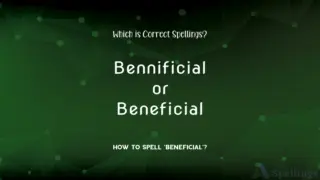
Next Spelling
Bennificial or Beneficial
